Vuelta a Espana: Contador claws back 42 seconds on Froome on stage 12
Trek-Segafredo teammate Theuns: 'My legs never hurt so much in my life'
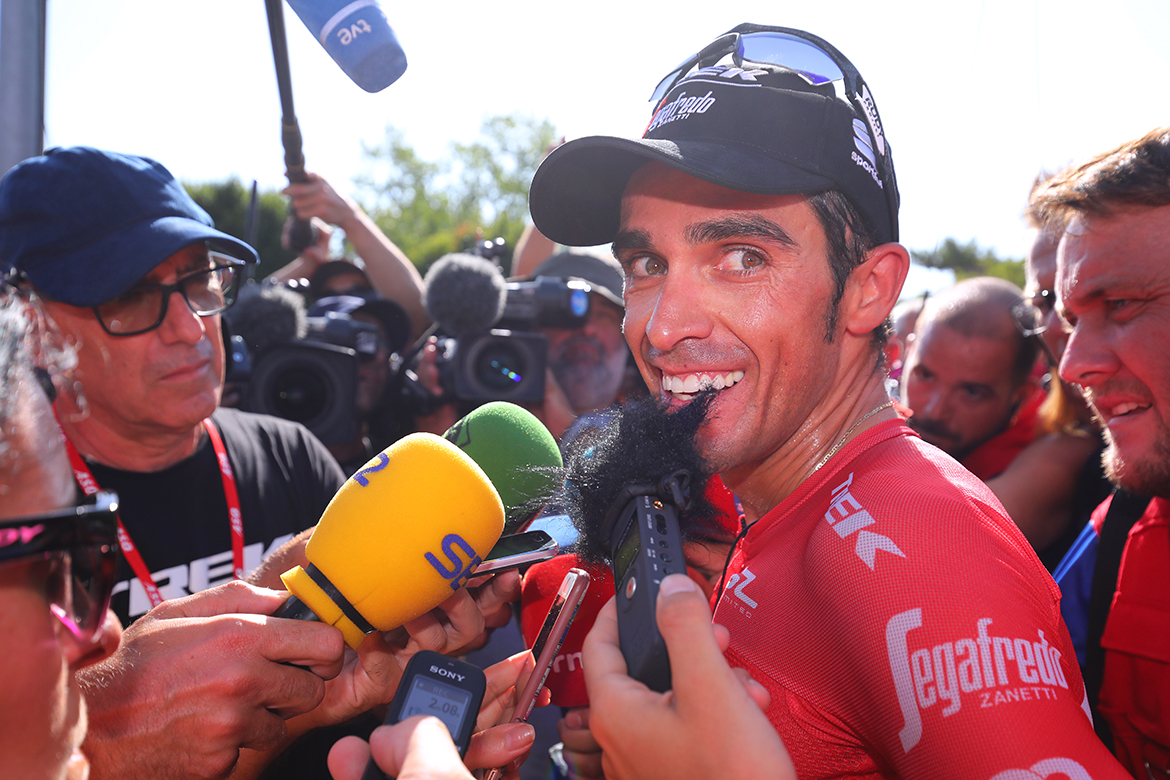
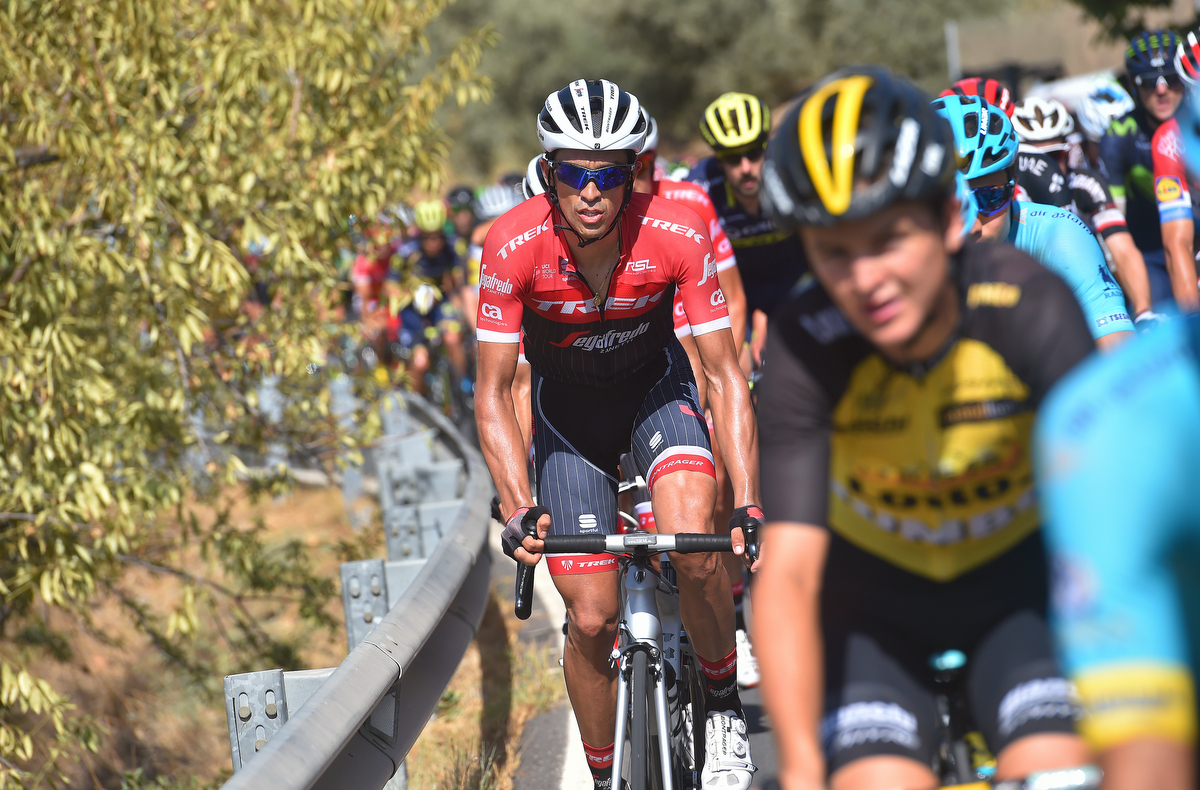
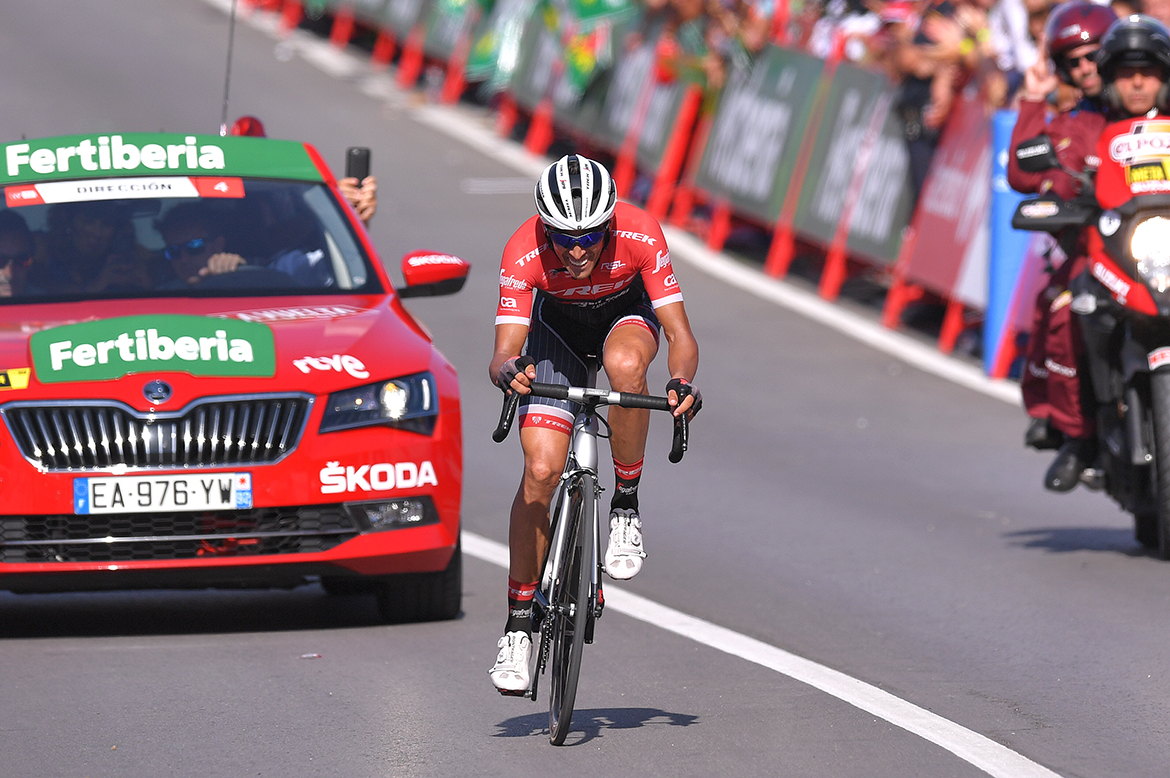
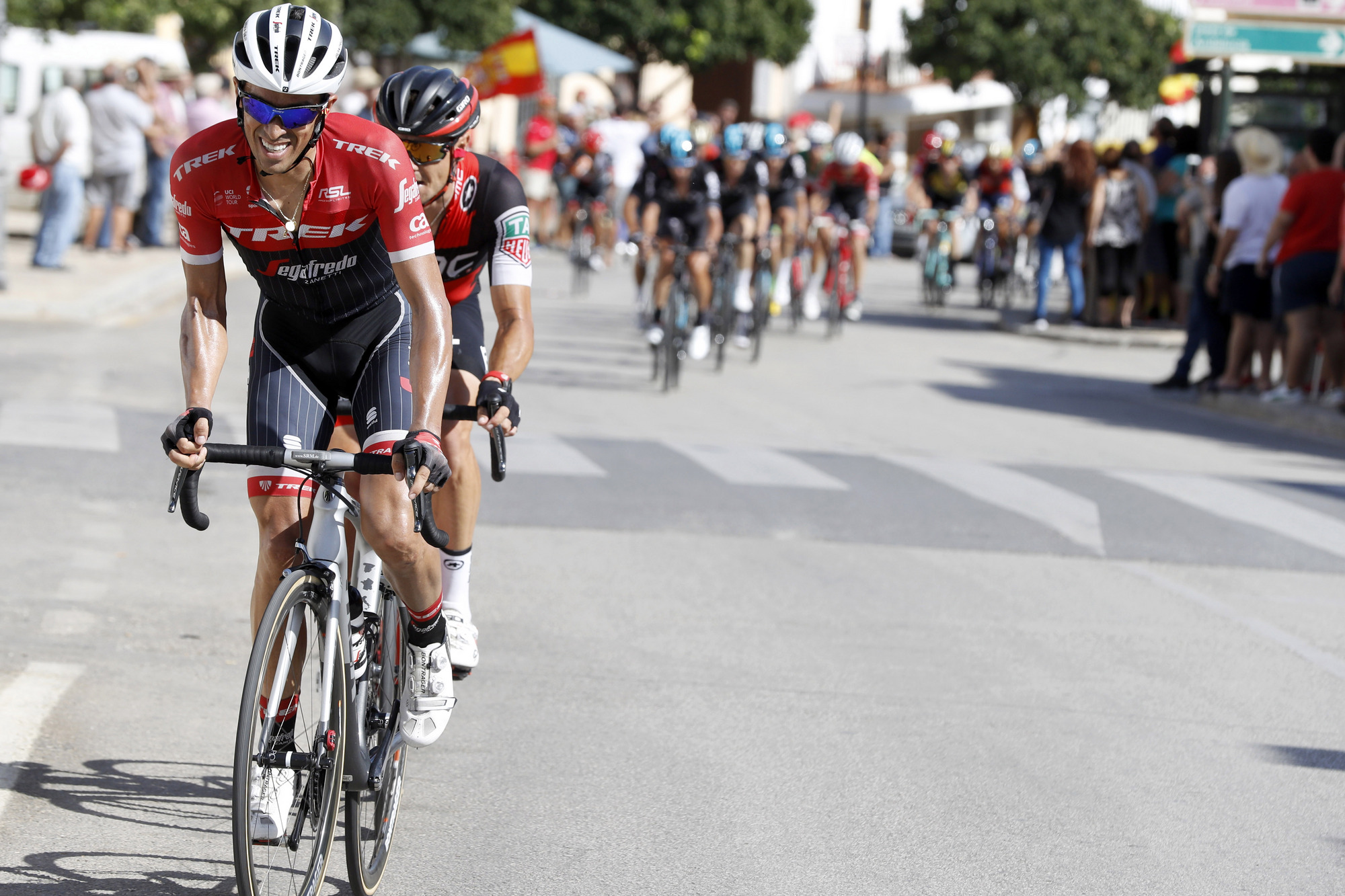
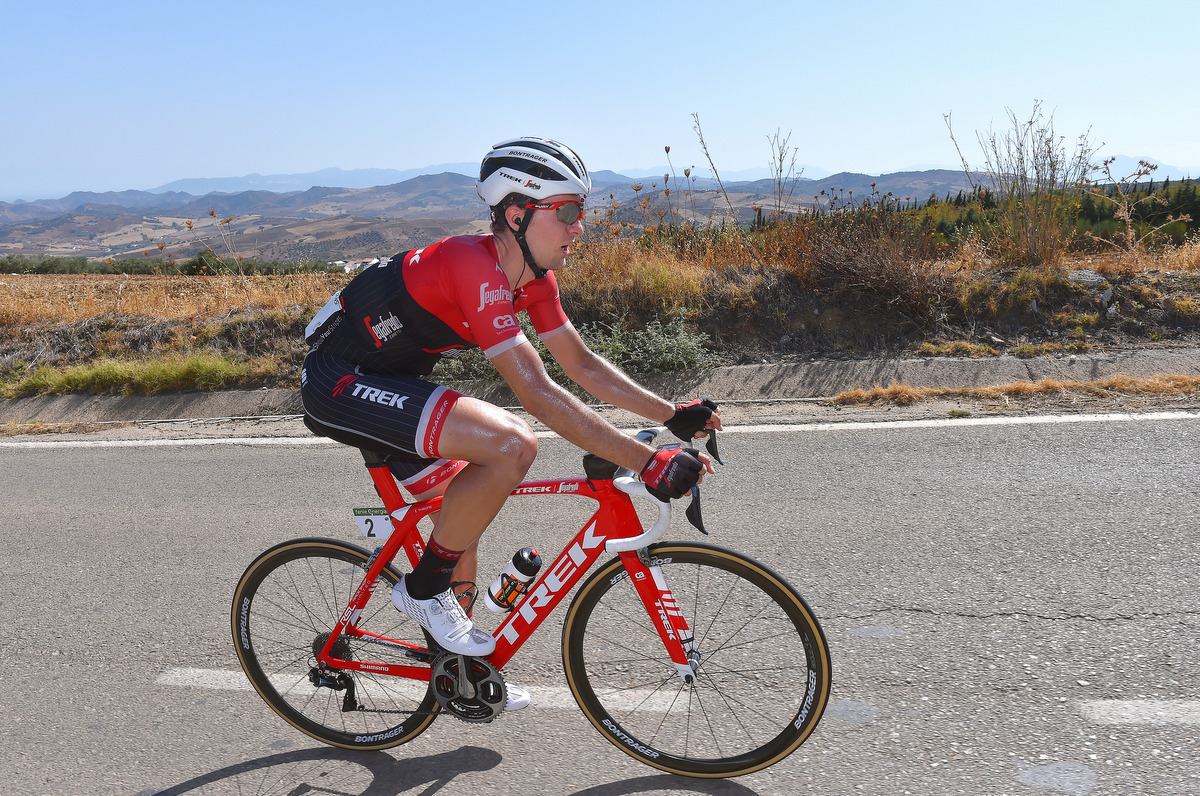
A defiant surprise attack by Alberto Contador (Trek-Segafredo) saw the Spanish Grand Tour star go on the rampage in the Vuelta a España's 12th stage and regain 42 seconds on race leader Chris Froome (Team Sky).
On a day when it looked as if the GC contenders would trundle across the finish line behind a break, Contador's attempt to blow the race to bits came when made his move close to the summit of the last climb of the stage, the second category Puerto del Tocal. He then kept driving all the way to the finish 17.5 kilometres further on, despite the lack of any significant downhill sections.
Taking long swigs from a water bottle at the finish, Contador said, "with a finish like that, that sort of time gap is about the best you can expect.
"I attacked with [Nicolas] Roche, but he was in trouble following me, then I knew I had a teammate ahead and gave it everything. I went as quick as I could but was careful because I knew the road could be slippery."
Although the gaps were minimal at the top of the second-category climb, less than 30 seconds, the first big game changer was that the Spaniard could draw on key support from teammate Edward Theuns, who had formed part of the break of the day, in a classic pincer move by the Trek-Segafredo veteran. The move became much more serious a threat when Froome crashed twice in the chase behind.
Theuns emptied himself on the front on the flatter segments and the downhill of the run-in to Antequera, with Contador yelling encouragement from behind and then taking some long turns himself. Finally the Belgian cracked about three kilometres from the line, and Contador went on alone. He took 20 seconds on a group containing Vincenzo Nibali (Bahrain-Merida) and 42 seconds on Froome.
The rugged transition stage, rendered tougher by the humidity and hot weather, was of the kind that has seen many Contador moves go clear in the past. Froome's bad luck widened the gaps, and Theuns' collaboration allowed a bold attack by Contador gain more than he had perhaps hoped for.
Get The Leadout Newsletter
The latest race content, interviews, features, reviews and expert buying guides, direct to your inbox!
The Spaniard said he heard that Froome had fallen at a point when the Bahrain-Merida led peloton was already at full tilt chasing behind him, and ahead of Froome.
"I knew he fell, but he got up quickly, he's lost very little time, tomorrow [Friday] is a flat stage, and sure, he'll be good from here on again."
Asked at what point exactly he had heard about Froome's crash, Contador said "We heard that he had fallen when we heard Nibali was on the move and chasing behind."
A few metres away at the finish line, Belgian sprinter Edward Theuns provided his account of how he had lived through a very tough finale.
"I think my legs never hurt so much in my life, I gave it everything I had and I'm glad he takes some seconds back," the Trek-Segafredo rider said.
"Three kilometres from the top of the climb, I heard that Contador had attacked behind and then I knew I had to make it to the top. I was standing still for like two or three minutes to wait for him and then we went for it on the downhill."
"It was not easy, there were some nasty small uphills and I tried to follow him but that really hurt my legs so much. But I could survive some of the bumps and do some work in the downhill. I hope I helped him a little bit."
He looked rather shocked when he was asked by one journalist if he thought Contador was going well. "If you attack all the GC favourites, since Andorra he's had one bad day, and since then he's taken back time," Theuns pointed out. "It's an honour to be here for his last race."
Contador remains ninth overall, but the time gap is now down to 3:13 on Froome and perhaps more realistically, if he is looking at the podium, he is at exactly a minute behind third-placed Esteban Chaves (Orica-Scott). Asked if he still contemplated fighting for the overall, Contador grinned and said simply, "That'd be great,"
Alasdair Fotheringham has been reporting on cycling since 1991. He has covered every Tour de France since 1992 bar one, as well as numerous other bike races of all shapes and sizes, ranging from the Olympic Games in 2008 to the now sadly defunct Subida a Urkiola hill climb in Spain. As well as working for Cyclingnews, he has also written for The Independent, The Guardian, ProCycling, The Express and Reuters.
